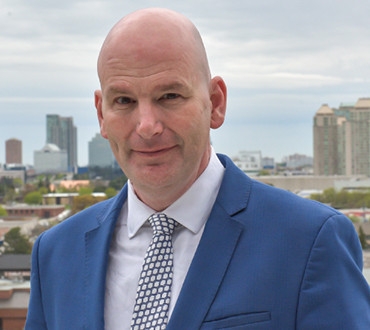
The president contacted me this week. No, not that president. He’s an administrator of a large Toronto-area college. He addressed me by my first name, which caught my attention. Then, he offered some reflections on the pandemic, its impact on teaching, on learning and most assuredly on budgets. I sensed it was a pitch letter. But he wasn’t pitching me about hisbudget. He spoke about students’ budgets, or lack of them.
“It’s the beginning of a new order,” Craig Stephenson, president of Centennial College, said in a note, “full of uncertainty for our students…”
Twice in the past week alone, I have received polite and poignant requests for support from Centennial College where I once taught journalism and broadcasting. It’s not that the college needs to fatten its bank account. It’s a matter of survival for some of the college’s most vulnerable, its students.
Later in the week, I received another note from the college’s alumni division. It articulated that the day-to-day experience of students in post-secondary programs has deteriorated to the point that – not unlike some other community members – individuals are choosing between buying food and paying rent.
In fairness, we’ve all been there. The university or college student lifestyle in Canada has always been hand-to-mouth. Back in the late 1960s, my two college roommates and I referred to our rented Cabbagetown lodgings as “mid-poverty-stricken.”
However, Centennial College has done its homework (full disclosure – I taught there for 18 years) and surveyed its student population (22,000 full-time and 19,000 part-time students) about food insecurity. Results were alarming. They showed that just under half their students often ran out of food. That’s about 20,000 young people.

Or, put into tangible perspective, the entire population of Cobourg or Collingwood or all of Uxbridge Township. More than one in three students told the survey they skipped a meal because they couldn’t afford to eat; and one in 10 used a food bank.
By the way, Centennial conducted that food insecurity survey in 2019, well before COVID-19 arrived.
Every year in Canada, colleges and universities employ hundreds of thousands of people, train and educate well over two million students, and in the process, they generate research, inspire generations of young people and improve the lives of all Canadians. Why then, since the 2008 recession, has the provincial government decreased its spending in the education sector?
Why has it been over the same period that the federal government has chosen not to increase base spending on post-secondary education? In short, why have governments turned a blind financial eye to universities’ and colleges’ basic needs?
By abrogating their fiscal responsibility to education forthcoming generations, governments have forced post-secondary institutions to survive principally on the tuition students pay – nearly 70 per cent of school funding comes from student fees. That’s great if you want a user-pay society, but not if you want a more highly trained and responsible citizenry.
Brenda Austin-Smith, president of the Canadian Association of University Teachers, wrote in the Toronto Star this week that post-secondary education cannot function if it depends so much on tuition.
“With more than half of all university students taking on an average of $28,000 of debt to get an education,” she wrote, “reliance on student fees to solve the funding crisis simply isn’t sustainable.”
Austin-Smith noted that the federal government’s Canada Student Grant this year would help, but what about when the country’s scientists and public health system have finally beaten back the effects of the pandemic? One day, things will approach normalcy, then what?
And where, by the way, do those in authority think the next generation of pandemic-beaters will come from but the country’s universities and colleges? Austin-Smith suggests maybe the federal government could redirect some of that $900 million from the stillborn Canada Student Service Grant as a stopgap. The money was already allocated for education.
When Centennial College contacted me this past week to shed light on the plight of its students, it unveiled its Student Emergency Fund, and requested I donate. Just the title of the fund was frightening enough. And as part of their appeal the college quoted an alumna, Tanya Domize.
“I know what the anxiety of financial instability feels like,” she said. “I know the incredible feeling of having support to make it through.”
As I sat the other morning considering Centennial’s pitch, I opened an email appeal from yet another post-secondary institution. This one came from farther away. Some years ago, while conducting historical research on military medicine, I travelled to Athens, Georgia, and spent a week at the University of Georgia campus there. In gratitude, I made a donation to UGA libraries. It appears UGA now has a student crisis on its hands too.
“Looking for a stocking stuffer this holiday season?” their appeal asked. “Purchase a UGA face covering to support the Student Emergency Fund.”